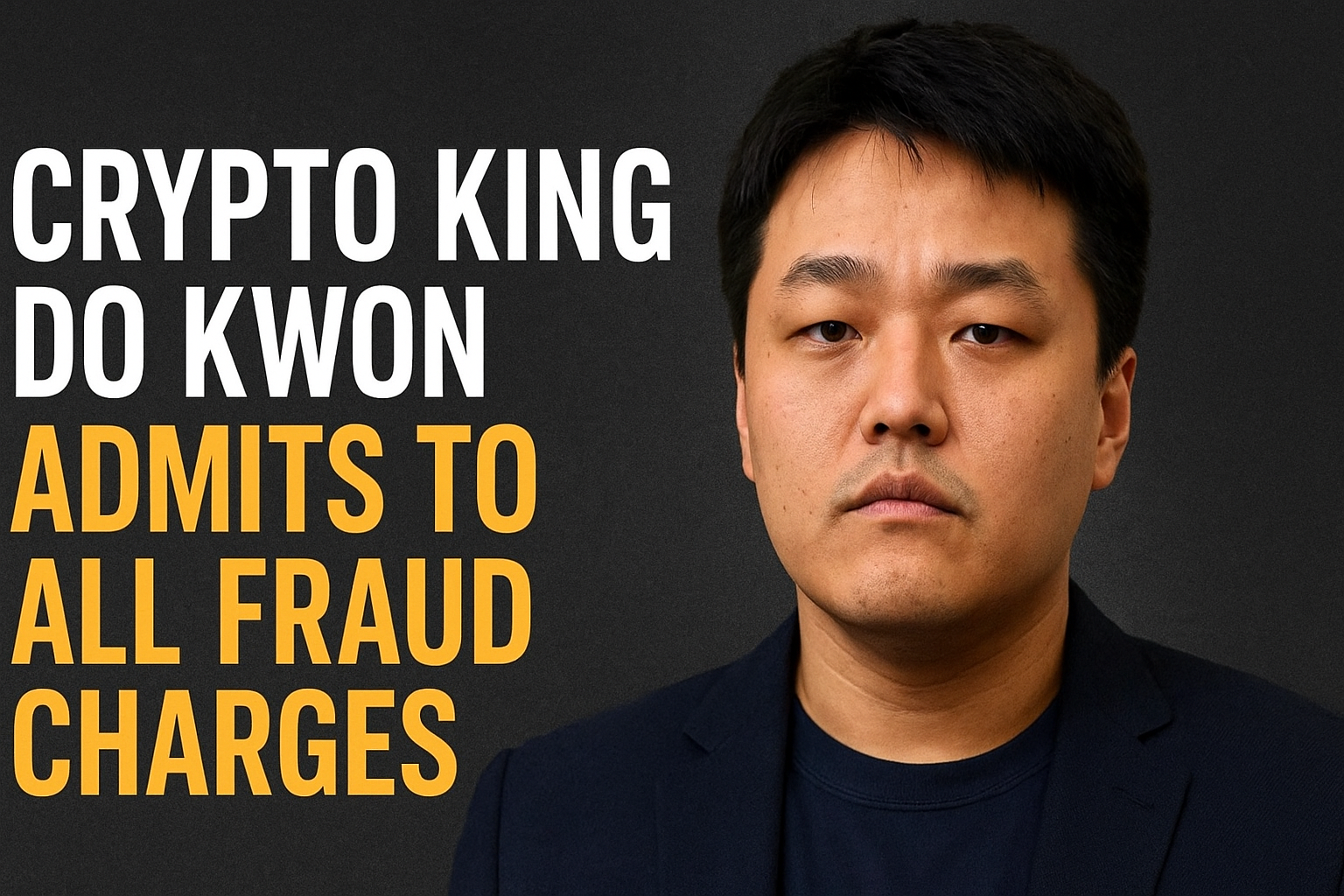The dramatic collapse of Terra/USD and Luna in 2022 initiated one of the most notorious crashes in cryptocurrency history. Dubbed the “Crypto King,” Terraform Labs co-founder Do Kwon has now admitted guilt — a game-changing development for victims, regulators, and the crypto industry at large. This examination covers the technical backdrop, legal escalation, timeline of events since the crash, sentencing considerations, and broader regulatory implications. It concludes with FAQs to clarify key points.
H2: A Timeline of Events
H3: The Rise and Crash of Terra
2018–2020: Terraform Labs launches with two main tokens: Luna, a volatile cryptocurrency, and TerraUSD (UST), an algorithmic stablecoin intended to hold a $1 peg via an automated mechanism. The design relied on market incentives rather than traditional collateral.
Wikipedia
Spring 2022: The combined market capitalization of Terra’s ecosystem peaked — estimates range from $40 billion to $50 billion, depending on source.
Wikipedia
Reuters
CoinDesk
May 2022: UST breaks its dollar peg; Luna plummets from over $116 to near zero — investors worldwide are wiped out.
Wikipedia
H3: Early Legal Actions and Flight
Mid-2022: The U.S. SEC opens a civil investigation; class-action lawsuits are filed globally. An eventual civil settlement includes an $80 million fine and a ban on crypto dealings — part of a broader $4.55 billion settlement.
The Guardian
Reuters
Wikipedia
March 23, 2023: Kwon is arrested in Montenegro using a forged passport while trying to flee.
Wikipedia
AP News
Late 2023 / December 31, 2024: Following legal wrangling, he is extradited to the U.S.
Wikipedia
Department of Justice
AP News
H3: Indictment and Guilty Plea
Early 2025: Kwon is indicted on nine federal counts, including securities, commodities, wire fraud, and money-laundering conspiracy. He initially pleads not guilty.
Reuters
AP News
August 12, 2025: He pleads guilty to two counts:
Conspiracy to commit commodities fraud, securities fraud, and wire fraud
Wire fraud alone
AP News
Reuters
Financial Times
The Verge
CoinDesk
The plea also includes forfeiture of over $19 million and relinquishing interest in Terraform and its cryptocurrency.
AP News
CoinDesk
Reuters
December 11, 2025: Sentencing is scheduled before Judge Paul Engelmayer.
Department of Justice
The Verge
CoinDesk
H2: Legal Details and Sentencing Breakdown
H3: Charge Structure and Maximum Sentences
Statutory Maximum:
Conspiracy charge: up to 5 years
Wire fraud charge: up to 20 years
Total: up to 25 years
Department of Justice
The Verge
Reuters
Original Indictment: If convicted on all nine counts, Kwon potentially faced up to 135 years behind bars.
CoinDesk
H3: Plea Agreement and Prosecutor’s Recommendation
The plea deal stipulates that prosecutors will recommend no more than 12 years in prison, contingent on compliance.
AP News
Reuters
CoinDesk
Financial Times
Once Kwon serves half of his sentence, the U.S. government will support international transfer, allowing him to serve the remainder in South Korea.
The Guardian
Reuters
KBS World
H3: Judge’s Discretion
It is Judge Engelmayer who holds final authority — he is not bound by the plea recommendation and could impose a longer sentence, though standards and precedent usually guide toward the agreed recommendation.
CoinDesk
The Verge
H2: Broader Impacts and Regulatory Context
H3: Investor Fallout and Market Effects
The collapse significantly shook confidence in algorithmic stablecoins and contributed to wider market turmoil — often termed part of the “crypto winter.”
Financial Times
Reuters
Many retail investors lost everything; class-action suits and regulatory inquiries span multiple jurisdictions.
Wikipedia
Reuters
Financial Times
H3: Precedent in Crypto Enforcement
Kwon’s case builds upon precedent set by high-profile prosecutions like Sam Bankman-Fried, FTX founder, who received a 25-year sentence.
The Guardian
Financial Times
Legal scrutiny continues to intensify around algorithmic tokens and centralized control masquerading as decentralized finance.
Reuters
Financial Times
H3: Global Regulatory Ripples
The case highlights gaps in cross-border regulation and enforcement of crypto practices. Official cooperation between Montenegro, the U.S., and other regulators shows growing international coordination.
Department of Justice
Reuters
For South Korea, Kwon’s home country, the transfer clause and domestic charges point to ongoing legal entanglements at home.
Wikipedia
The Guardian
Reuters
H2: Conclusion
The trajectory of Do Kwon—from crypto wunderkind to convicted fraudster—symbolizes the extreme highs and colossal lows of the digital asset boom. Legally, he confronts a statutory maximum of 25 years, but under his plea agreement, prosecutors will recommend a 12-year ceiling, assuming cooperation. The judge’s final ruling in December 2025 will determine whether Kwon serves the minimum, something in between, or potentially more.
In policy terms, the case underscores the escalating regulatory evolution confronting the cryptocurrency industry and reinforces that senior crypto executives will face serious accountability when investor trust is breached.
H2: Frequently Asked Questions (FAQs)
- What is the maximum prison sentence Do Kwon could face under U.S. law?
He faces a statutory maximum of 25 years: 5 years for conspiracy and 20 years for wire fraud.
The Verge
Department of Justice
Reuters - What sentence are U.S. prosecutors recommending?
They’ve agreed to recommend no more than 12 years, provided Kwon complies with plea terms.
AP News
Reuters
CoinDesk - When is sentencing, and who decides the final sentence?
Sentencing is scheduled for December 11, 2025, before Judge Paul Engelmayer, who has final discretion.
Department of Justice
The Verge
CoinDesk - Could Kwon serve his sentence in South Korea?
Yes — if he serves half of his U.S. sentence, prosecutors will support his application to transfer to South Korea.
The Guardian
Reuters
KBS World - What penalties beyond prison time has he agreed to?
He must forfeit over $19 million in proceeds and relinquish his stake in Terraform Labs and its tokens. He also faces civil penalties — including a prior $80 million fine — and is banned from crypto transactions as part of a separate SEC settlement.
AP News
CoinDesk
Reuters
The Guardian
